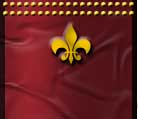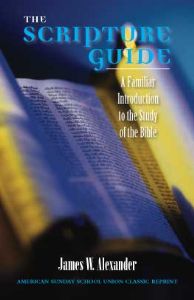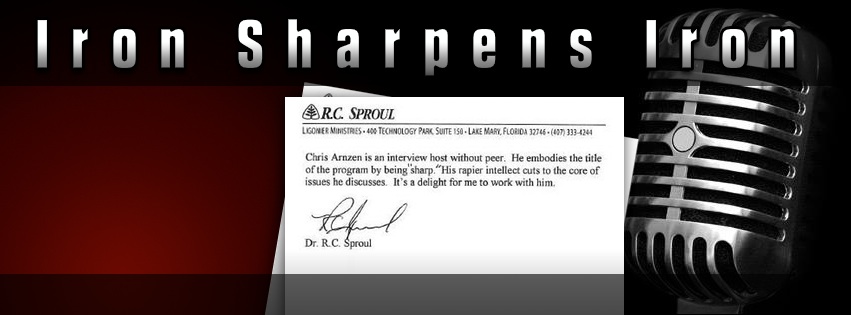




 |
|||||
 |
THE SCRIPTURE GUIDE: A Familiar Introduction to the Study of the Bible
James W. Alexander![]()
"The great end of all religious teaching would be attained, if men could be brought to read the Bible aright. No books, therefore, are unimportant, which point to the Holy Scriptures. Such is the present attempt, which is expressly dedicated to the YOUNG. It is intended for excitement as well as instruction; not only to communicate information and explain difficulties, but to offer inducements for the study of the Bible." - from the author's Preface![]()
"This fascinating book by a superb theologian and pastor provides a wealth of information about the Bible and serves as an able introductory guide to Bible study as well as an effective evangelistic tool. The directions given in the last chapters on how to read the Bible are themselves worth the price of the book." - Dr. Joel R. Beeke![]()
James W. Alexander (1804-1859) was the oldest son of Archibald Alexander. In addition to being a brilliant lecturer and preacher in college, seminary and the local church, Alexander labored to write books that would speak to the hearts and minds of the simple. He wrote numerous volumes for The American Sunday School Union that were unusually popular with all ages and all classes of people. THIS MAY BE HIS BEST CONTRIBUTION TO THAT DISTINGUISHED MINISTRY.![]()
Written in the form of a story, Alexander has two young boys spend the Christmas holiday with their elderly Uncle Austin, who has earned the nickname "The Bible Man." Follow these young fellows as they enjoy their vacation by learning life-changing lessons from the Holy Scriptures. The final three chapters set forth 30 Directions for Studying the Bible. These are worth the price of the book!![]()
20 ENDANGERED TITLES SPECIAL c50![]()
Nearly 50% Discount![]() SGCB Price: $10.95 (list price $20.00)
SGCB Price: $10.95 (list price $20.00)![]()
ORDER WITH J.W. ALEXANDER'S BRILLIANT BOOK 'MY BROTHER'S KEEPER'![]() SGCB Price: $17.50 (list price $35.00)
SGCB Price: $17.50 (list price $35.00)
THIS IS THE PRICE FOR BOTH ALEXANDER TITLES (50% OFF)![]()
Additional Information
• Biographical Sketch of Author
• Author's Original Preface
| Biographical Sketch of Author |
James Waddel Alexander, the first son of Janetta and Archibald Alexander, was born in Louisa County, Virginia, on March 13, 1804. His father was the president of the small Presbyterian college called Hampden-Sydney. His mother was the daughter of the famed blind preacher of Virginia, James Waddel?for whom the baby was named. In 1807 James moved with his family to Philadelphia, where his father became pastor of the Pine Street Church. In 1812 Archibald Alexander was called by the General Assembly of the Presbyterian Church to become the founding professor of the new seminary at Princeton. James and his siblings probably learned more at home than they did at the various schools they attended. Dr. Alexander taught them spelling, arithmetic, geography, algebra, geometry, the classical languages, and especially the Bible. James remembered that "except in hours of devotion" his father's study was always open to the children, even the youngest, and that their books and toys were on his floor. James studied in Philadelphia and then entered Princeton College, graduating in 1820. Even though he was brought up in a home of faith and piety, young Alexander did not make a public profession of faith until the death of a friend turned his thoughts more urgently to God. On March 30, 1821, he joined the Presbyterian church in Princeton. The next month he wrote in his journal:
When I look forward to future life, a dreary darkness presents itself. What am I qualified for? I never can, in conscience, embrace any other profession but the "gospel of Christ"; but, alas, where are my qualifications? I never, never can be a speaker.
Despite his fears, James entered Princeton Seminary in the autumn of 1822. He reveled in his studies with the three professors?his father, Samuel Miller, and young Charles Hodge?and greatly enjoyed companionship with his fellow students. While studying at the seminary, he taught mathematics and languages at Princeton College. He then served his father's old congregation at Charlotte Court House in Virginia, living in the house in which his father had lived thirty years earlier. After a serious illness, he became, in 1829, pastor of the Presbyterian church in Trenton, New Jersey. On June 18, 1830, he married Elizabeth Cabell, daughter of a Virginia physician. James and Elizabeth had seven children, four of whom died in infancy.
After a short period as editor of The Presbyterian, Alexander was appointed professor of Rhetoric and Belles-Lettres at Princeton College in 1833. During his eleven years at the college he preached over sixty times a year; for seven years he was the pastor of the African American Presbyterian church in Princeton. According to Charles Hodge, Alexander regarded the sermons he preached there "the best he ever delivered." An avid reader, he was also a productive author, writing books and articles for the Princeton Biblical Repertory (of which he was editor) and other journals and magazines. Charles Hodge commented that he heard J. W. Alexander say that "the only trouble he found in writing was turning the pages."
Alexander's great love, however, was preaching; and in 1844 he accepted a call to the Duane Street Presbyterian Church in New York City. There he developed a deep concern for the needs of the great city and tried to lead his church into a bold and fresh outreach to the poor and the lost.
The 1849 General Assembly of the Presbyterian Church elected J. W. Alexander to Samuel Miller's chair of Ecclesiastical History and Church Government at Princeton Seminary. Although he preferred to remain a pastor, the forty-five-year-old Alexander bowed to the decision of the church. With his wife and family, he returned to Princeton and to the delightful company of his mother and father, his brother, J. A. Alexander, who was professor of Oriental and Biblical Literature at the seminary, and his friend Charles Hodge. J. W. Alexander enjoyed studying and teaching church history. During 1850 he also lectured in homiletics. The young man who had been sure that he could never be a speaker had become a masterful preacher and a skillful teacher of preachers. James P. Boyce, who entered Princeton in 1849, said that in the area of "sacred rhetoric" Dr. J. W. Alexander was "the most delightful lecturer" he had ever heard. Princeton students and professors, and many others, believed that the American pulpit had few superiors to J. W. Alexander. Charles Hodge said that it was the combination of natural ability, wide scholarship, eloquence and a resonant voice, and Christian devotion that made Alexander "not the first of orators to hear on rare occasions, but the first of preachers to sit under, month after month and year after year."
Dr. Alexander missed the pastorate. Soon after coming back to Princeton he wrote, "I miss my old women; and especially my weekly catechumens, my sick rooms, my rapid walks, and my nights of right-down fatigue." He felt keenly "the evils of the academic manner" and the tendency of the clergy "to be much with the rich and the lettered, instead of being lights to the world." In 1851, after teaching only two years at the seminary, he accepted a call to the Fifth Avenue Presbyterian Church in New York City. He again threw himself eagerly into pastoral work, serving his large congregation and preaching in city missions to the poor. He became a major force in the revival of 1857-1858 that began in New York City and spread to other cities. To further the revival and "to give individual souls in the various stages of awakening or quickening under Divine influence the needed instruction, counsel, and guidance," Alexander wrote sixteen tracts for distribution at police and fire stations and throughout the city.
J. W. Alexander, according to his friend John Hall, suffered throughout his life from a nervous condition that subjected him to violent mood swings?"from the highest pitch of joyous excitement to the depths of melancholy and indescribable misery." His experience of "overwhelming distresses" deepened his trust and dependence on God and developed in him a spirit of care and sympathy for suffering people. Alexander's sermons, such as those in the volume A Shepherd's Heart: Sermons from the Pastoral Ministry of J. W. Alexander (Solid Grounds Christian Books, 2004), demonstrate a fine combination of biblical orthodoxy and Christian compassion.
In June 1859 Dr. and Mrs. Alexander traveled to Virginia to try to get help for his serious illness. They consulted with Mrs. Alexander's brother, Dr. James L. Cabell, prominent physician and professor at the University of Virginia. They moved on to Warm Springs and then to Red Springs, seeking some relief from his sickness. It was not to be?or, in a greater and permanent sense, it was to be?and on July 31, 1859, J. W. Alexander died in Virginia, where he had been born fifty-five years earlier. As Charles Hodge put it in his memorial sermon for Alexander, "Early on the morning of the last Sabbath of July, just as the first rays of the sun gilded the tops of the surrounding mountains, the glories of heaven broke on his enraptured gaze." Alexander's last words were from the Scriptures that he had preached so faithfully and about the Christ that he had loved so deeply: "I know whom I have believed, and am persuaded that he is able to keep that which I have committed unto him against that day." These words were inscribed on a memorial tablet that was placed on the pulpit of Dr. Alexander's New York City church.
The body of James Waddel Alexander was brought back to Princeton and buried in the old cemetery beside the graves of his parents.
-Contributed by David B. Calhoun
